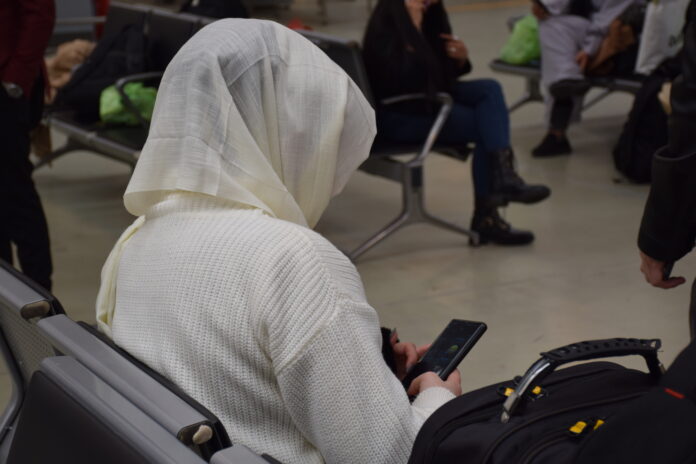Rome (NEV), 23 February 2023 – Today, Thursday 23 February, a group of 97 Afghan refugees arrived from Pakistan as part of the Humanitarian Corridors programme carried out by Caritas Italiana (on behalf of CEI – Italian Episcopal Conference), FCEI (Federation of Protestant Churches in Italy), the Waldensian Board and the Community of Sant’Egidio.
This latest corridor is also implemented on the basis of the protocols signed with the Italian government in November 2021, for a total of 1,200 people who fled Afghanistan to be welcomed in Italy by the churches and civil society.
The Afghan citizens who arrived will be hosted in various dioceses, churches and communities, from north to south, and in particular in Trentino-Alto Adige, Veneto, Lombardy, Piedmont, Tuscany, Lazio, Apulia and Calabria. They are family units and individuals, some of whom will be reunited in Italy with relatives already living in our country.
The humanitarian corridors mechanism has ensured the escape from war and serious rights violations of asylum seekers, refugees and vulnerable people who would otherwise never have been able to reach European territory.
Don Marco Pagniello, director of Caritas Italiana, explains, “Beyond the different types of intervention we provide (humanitarian corridors, university corridors, humanitarian evacuations, emergency reception), Caritas’s commitment has been to implement a reception and integration system whose focus is on communities. From the very first moment, in fact, families, parishes and religious institutes have guaranteed the necessary assistance to those who have arrived in our country. This has been possible thanks to the APRI project (from the Pope’s four verbs ‘Accogliere, Proteggere, Promuovere, Integrare’ – ‘Welcome, Protect, Promote, Integrate’) which, over time, has made it possible to effectively and competently address these important challenges, raising the awareness of the communities involved as to the real value of welcoming. Involving the territory and the communities,’ continued the director of Caritas Italiana, ‘means providing citizens with the tools to understand and accompany a complex phenomenon such as migration without being subjected to it, thus helping to change the perception and therefore the narrative: the migrant is no longer the stranger who enters our home, but a fragile person with a name and a story that deserve consideration as well as respect’.
Daniele Garrone, president of the Federation of Protestant Churches in Italy, says: “Today we welcome these Afghan families, women, men and children who are leaving behind a country where rights are trampled on every day. They will have the chance to rebuild their lives in Italy, in Europe, and for us to accompany them on this path is a privilege. We hope, in light of an emergency that unfortunately continues, that we can continue to welcome them and we are ready to do so; we confirm our commitment’. He adds: ‘At the same time, we believe that the international community must take responsibility for what is happening in Afghanistan, for the human rights violations, especially for women and for girls. What we read every day, most recently the denial of the right to education, is intolerable. Our thoughts are with the people left behind in that country. We think it is important for Europe to take in other people in danger, through humanitarian corridors and all other available instruments, and at the same time work to restore peace and rights for the Afghan people”.
“In a time of forgetting wars and their tragic consequences, we have not forgotten the suffering of the Afghans,” says the president of the Community of Sant’Egidio, Marco Impagliazzo. “Today, for many families, a new life begins, safe in Italy, thanks to humanitarian corridors, the result of the virtuous collaboration between institutions and civil society that shows the extent to which it is possible to save lives, welcome and integrate.
With today’s arrival, the reception quota established for Sant’Egidio in the protocol signed on 4 November 2021 with the Ministries of the Interior and Foreign Affairs is exhausted. Our Community is ready to welcome other people and we hope that the institutions will extend the protocol, so as to respond to the suffering, in particular, of so many Afghan women”.





























